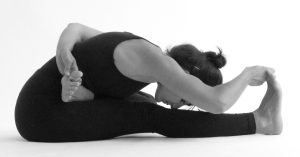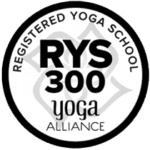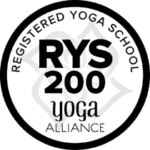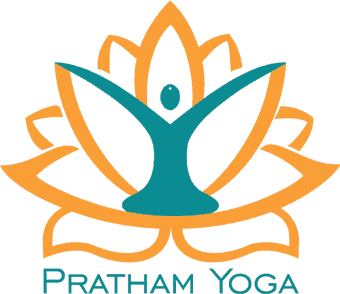Crafting Yogic Foundations with Ardha Baddha Padma Uttanasana
Welcome to the world of yoga, where each asana (pose) holds a unique essence, offering profound physical and mental benefits. Among the myriad postures, Ardha Baddha Padma Uttanasana stands as an embodiment of balance, strength, and focus. Let’s delve into the depths of this beautiful pose, understanding its history, significance, steps, benefits, and variations.
History of Ardha Baddha Padma Uttanasana
Ardha Baddha Padma Uttanasana, derived from the Sanskrit words ‘Ardha’ (half), ‘Baddha’ (bound), ‘Padma’ (lotus), and ‘Uttanasana’ (forward fold), holds roots in ancient yoga practices. This pose is a fusion of balance, flexibility, and alignment, with its origins tracing back to traditional Hatha yoga.

Understanding Ardha Baddha Padma Uttanasana
Ardha Baddha Padma Uttanasana is a variation of Uttanasana (Forward Fold) where one leg is folded in a half lotus position while maintaining a forward fold. This asana integrates elements of balance, flexibility, and concentration, making it an intermediate-level posture.
Basic Posture of Ardha Uttanasana
– Starting Position
Begin in a standing position with feet hip-width apart.
– Forward Fold
Initiate the posture by folding forward from the hips.
– Spine Alignment
Maintain an elongated spine throughout the pose.
– Chest Open
Keep the chest open, avoiding rounding of the shoulders.
– Ardha Baddha Padma Uttanasana Variation
In Ardha Baddha Padma Uttanasana, assume the same forward fold position.
– Half Lotus Position
Place one foot in a half-lotus position while continuing the forward fold.
– Balance and Alignment
Focus on balance and alignment to ensure stability in the half lotus position.
– Breathing
Breathe deeply and evenly to enhance the stretch and maintain relaxation.
– Modification for Comfort
Modify the foot position or the depth of the forward fold for comfort and individual flexibility.
– Awareness
Stay aware of the sensations in the body, especially in the hamstrings, spine, and hips.
– Duration
Hold the posture for a comfortable duration, gradually extending it as flexibility improves.
– Exit Gracefully
To exit, slowly rise, keeping the spine supported and avoiding sudden movements.
Ardha Uttanasana and its variation with half lotus provide a deep stretch to the back of the legs while enhancing balance and flexibility.
Differences between Ardha Uttanasana and Uttanasana
While both Ardha Uttanasana and Uttanasana involve a forward fold, Ardha Uttanasana includes the added element of the half lotus position in one leg, requiring increased balance and flexibility compared to Uttanasana.
Impact on Spine and Hamstrings
– Primary Focus on Spine
Ardha Uttanasana places a primary emphasis on the spine, aiming to gently stretch and lengthen it.
– Engagement of Hamstrings
Simultaneously, the posture engages the hamstrings, contributing to the overall stretch in the lower body.
– Gentle Stretching in Ardha Uttanasana
The stretch applied to the spine is gentle, promoting flexibility and a sense of elongation in the vertebral column.
– Involvement of Hamstrings in the Stretch
As the spine is stretched, the hamstrings are actively involved, creating a dual impact on both areas.
– Enhanced Stretch with Half Lotus
The half lotus position in Ardha Uttanasana enhances the stretch, particularly in the hips and thighs.
– Specific Focus on Hips and Thighs
The half lotus adds specificity to the stretch, targeting the hip joints and the muscles of the thighs.
– Balanced Impact
Ardha Uttanasana achieves a balanced impact on both the spine and hamstrings, promoting overall flexibility and strength.
– Mindful Stretching
Practitioners are encouraged to approach the stretch mindfully, avoiding any strain on the spine or hamstrings.
– Modification for Comfort
Individuals can modify the depth of the stretch based on their comfort level and flexibility, ensuring a safe practice.
– Benefits for Posture
The combined impact on the spine and hamstrings contributes to improved posture and a sense of openness in the back.
– Release of Tension
The stretch in Ardha Uttanasana facilitates the release of tension in the spine and hamstrings, promoting a sense of relaxation.
– Consistent Practice for Progress
Regular practice of Ardha Uttanasana is key to experiencing progressive benefits in spinal flexibility and hamstring strength over time.
Benefits of Ardha Baddha Padma Uttanasana
– Enhances Balance and Focus
Ardha Uttanasana enhances balance by requiring stability in the forward fold, promoting concentration and focus during the pose.
– Opens the Hips
The posture incorporates hip opening, helping to increase flexibility and mobility in the hip joints.
– Stretches the Hamstrings
A key aspect of Ardha Uttanasana is hamstring stretching, contributing to improved flexibility in the back of the thighs.
– Strengthens Legs and Ankles
The pose engages and strengthens the muscles in the legs and ankles, enhancing overall lower body strength.
– Improves Posture and Alignment
Regular practice of Ardha Uttanasana contributes to better posture and spinal alignment, promoting a straight and elongated spine.
– Calms the Mind
The meditative quality of the pose, combined with controlled breathing, helps in calming the mind and fostering a sense of tranquility.
– Reduces Stress
Ardha Uttanasana’s focus on mindful movement and stretching aids in reducing stress and tension in the body.
– Holistic Mind-Body Connection
The pose facilitates a holistic mind-body connection, bringing awareness to physical sensations and promoting mental clarity.
– Balancing Energy Flow
By combining balance, stretching, and strength elements, Ardha Uttanasana helps balance the flow of energy throughout the body.
– Accessible Relaxation Technique
The calming effects make Ardha Uttanasana an accessible relaxation technique, suitable for individuals at various fitness levels.
– Mindful Breath Integration
Practitioners are encouraged to synchronize breath with movement, deepening the mind-body connection and enhancing the overall calming effect.
– Consistent Practice for Mental Well-being
Regular inclusion of Ardha Uttanasana in a yoga practice contributes to sustained mental well-being by promoting balance, focus, and stress reduction.
Modifications and Variations
For individuals with limitations or injuries, modifications can be made by using props like blocks or practicing a simpler variation without the half lotus position. Variation includes placing the foot on the inner calf instead of the thigh for less intensity.
Ardha Baddha Padma Uttanasana, with its rich history and multifaceted benefits, stands as a testament to the holistic approach of yoga. Incorporating this pose into your practice nurtures the body, mind, and spirit, fostering harmony and balance in every aspect of life.
200 Hour Yoga Teacher Training
Embark on a transformative journey with Pratham Yoga’s 200 Hour Yoga Teacher Training (TTC) in Rishikesh, India. This comprehensive program explores various facets of yoga, placing a special emphasis on Ardha Baddha Padma Uttanasana among other transformative practices. The precise guidance focuses on alignment, breath control, and mindful execution. Perfect for individuals stepping into the teaching realm or enhancing their personal practice, our 200 Hour Yoga TTC in Rishikesh offers a comprehensive exploration of yogic philosophy, anatomy, and teaching methodologies. This program provides a robust foundation for your yogic journey, set against the vibrant backdrop of Rishikesh, India.
300 Hour Yoga Teacher Training
Take your yoga practice to the next level with Pratham Yoga’s 300 Hour Yoga Teacher Training in Rishikesh, India. Building on the 200-hour program, this advanced training delves deeper into yoga philosophy, anatomy, and teaching skills. Ardha Baddha Padma Uttanasana is intricately integrated into the curriculum, offering participants a profound journey of self-discovery. Tailored for those seeking an advanced certification, this program emphasizes personal growth and teaching expertise, preparing individuals to guide others on their transformative yogic path.
Discover the profound depths of yoga and unlock the potential within you with Pratham Yoga‘s teacher training courses in Rishikesh, India.


